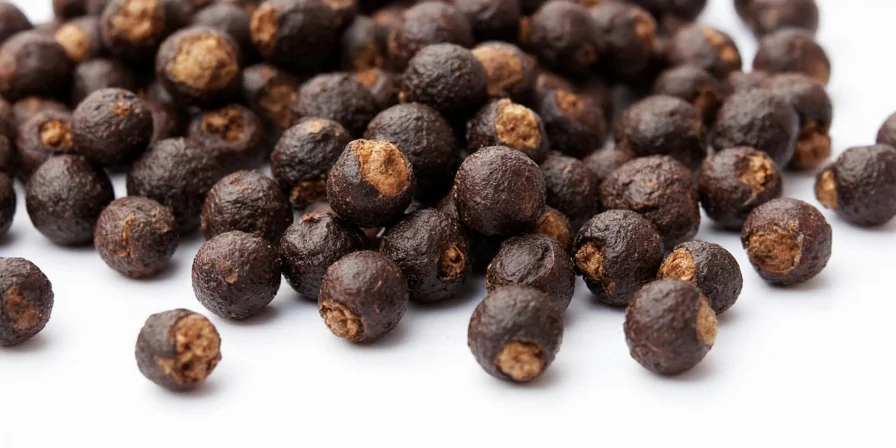Understanding Black Peppercorns: The King of Spices
Black pepper, scientifically known as Piper nigrum, is often referred to as the 'king of spices' due to its widespread use and rich flavor profile. This small, round berry is a staple in kitchens around the world and has been revered for centuries for both its culinary and medicinal properties.
The History of Black Peppercorns
Black pepper has a fascinating history that dates back thousands of years. It was once so valuable that it was often referred to as 'black gold' and was even used as currency in trade. Ancient civilizations, including the Egyptians and Romans, prized black pepper for its flavor and preservative qualities.
Ancient Trade Routes
The spice trade played a significant role in the history of black pepper, leading to the establishment of trade routes that connected the East and West. Merchants traveled long distances to procure this valuable spice, which was highly sought after in Europe.
Types of Black Peppercorns
While the most common type is the standard black peppercorn, there are several varieties, each with its unique flavor characteristics.
- Tellicherry Peppercorns: Grown in India, these are known for their larger size and complex flavor profile.
- Malabar Peppercorns: Also from India, these have a slightly earthy taste and are often used in Indian cuisine.
- Lampong Peppercorns: Originating from Indonesia, these have a bold, pungent flavor with a hint of citrus.
- Sichuan Peppercorns: Technically not true pepper, these have a unique numbing quality in addition to their heat.
Flavor Profile and Culinary Uses
The flavor of black peppercorns is complex, with a pungent heat that can enhance a variety of dishes. They can be used whole or ground, depending on the desired intensity and texture.
Whole vs. Ground Pepper
Using whole peppercorns can add a burst of flavor and aroma to dishes, while ground pepper is more convenient for everyday cooking. However, freshly ground black pepper is typically more flavorful than pre-ground pepper, making it worth the extra effort in many cases.
Culinary Applications
Black pepper is incredibly versatile and can be used in countless dishes, including:
- Soups and Stews: Adds depth of flavor.
- Meats: Enhances the taste of grilled or roasted meats.
- Vegetables: A simple sprinkle can elevate steamed or roasted vegetables.
- Salads: Freshly cracked black pepper can enhance dressings and toppings.
- Spices and Marinades: Works well in blends.
Health Benefits of Black Peppercorns
Apart from its culinary uses, black pepper is also known for its potential health benefits. Here are some notable ones:
| Health Benefit | Description |
|---|---|
| Digestive Aid | Stimulates the production of digestive enzymes, aiding in digestion. |
| Antioxidant Properties | Contains antioxidants that help combat oxidative stress in the body. |
| Anti-Inflammatory Effects | May help reduce inflammation in the body. |
| Enhances Nutrient Absorption | Piperine, a compound in black pepper, enhances the absorption of certain nutrients. |
How to Store Black Peppercorns
To maintain the freshness and potency of black peppercorns, proper storage is essential. Here are some tips:
- Store in an airtight container.
- Keep in a cool, dark place away from direct sunlight.
- Avoid moisture, which can lead to mold and spoilage.
Grinding Techniques
When it comes to grinding black pepper, several methods can be employed:
- Pepper Mill: Provides a consistent grind and is easy to use.
- Mortar and Pestle: A traditional method that allows for control over the grind size.
- Spice Grinder: Efficient for larger quantities but can heat the pepper, affecting flavor.
Conclusion
Black peppercorns are a culinary staple that transcends borders and cultures. Their rich history, diverse flavors, and numerous health benefits make them an essential ingredient in any kitchen. Whether used whole or ground, black pepper adds a distinctive taste that enhances a wide range of dishes. So, the next time you reach for the pepper shaker, remember the journey of the little black peppercorn and the flavor it brings to your meals.











 浙公网安备
33010002000092号
浙公网安备
33010002000092号 浙B2-20120091-4
浙B2-20120091-4